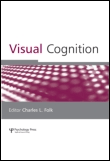
VISUAL COGNITION
Scope & Guideline
Decoding the Complexities of Visual Thought
Introduction
Aims and Scopes
- Visual Attention Mechanisms:
Research on how attention is allocated in visual tasks, including studies on distractor suppression, attentional capture, and the role of working memory in visual search. - Face Processing and Recognition:
Investigations into how faces are perceived and recognized, including studies on the own-race bias, facial emotion processing, and the effects of familiarity on face recognition. - Spatial Cognition and Memory:
Explorations of how spatial information is represented and recalled, with a focus on the interplay between visual and spatial attention, memory constraints, and the effects of spatial cues. - Emotional and Social Context in Visual Processing:
Examination of how emotional expressions and social dynamics influence visual attention and perception, including the impact of anxiety on attention to emotional stimuli. - Cross-Modal Interactions:
Studies on how visual perception interacts with other sensory modalities, such as auditory and tactile inputs, and how these interactions affect cognitive processes.
Trending and Emerging
- Dynamic Visual Environments:
An increasing number of studies focus on how individuals perceive and interact with dynamic visual scenes, including virtual reality settings and real-time social interactions. - Impact of Anxiety on Visual Processing:
There is a growing interest in understanding how anxiety and other emotional states affect visual attention and perception, particularly in the context of social interactions and emotional stimuli. - Integration of Cognitive and Neural Mechanisms:
Research is increasingly integrating cognitive psychology with neuroscientific approaches, examining the neural correlates of visual attention and perception to better understand underlying mechanisms. - Cross-Cultural Perspectives in Visual Cognition:
Emerging studies are exploring how cultural differences influence visual processing and attention, particularly in the context of face recognition and social cues. - Applications of Eye-Tracking Technology:
The use of advanced eye-tracking methods is on the rise, providing deeper insights into gaze behavior and attentional dynamics in various contexts, including education and clinical settings.
Declining or Waning
- Basic Visual Features and Processing:
Research focusing primarily on the basic features of visual stimuli, such as color and shape, appears to be waning as more complex interactions and cognitive processes become the focus. - Traditional Psychophysical Methods:
The use of traditional psychophysical approaches to study visual perception has decreased, as researchers increasingly employ more nuanced methodologies such as neuroimaging or computational modeling. - Static Visual Stimuli:
There is a noticeable decline in studies that investigate static images, with a growing interest in dynamic and interactive visual environments that better represent real-world scenarios.
Similar Journals
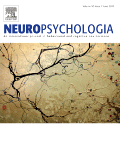
Neuropsychologia
Unlocking the Secrets of the Mind through Innovative StudiesNeuropsychologia, published by PERGAMON-ELSEVIER SCIENCE LTD, is a premier journal that delves into the intersections of psychology and neuroscience, specifically focusing on behavioral and cognitive processes. Since its inception in 1963, this esteemed journal has been a vital platform for researchers, professionals, and students, showcasing innovative studies and advancements in the fields of Behavioral Neuroscience, Cognitive Neuroscience, and Experimental Psychology. With a commendable impact factor, placing it in the Q2 category across multiple disciplines, Neuropsychologia is recognized for its contribution to the scientific community, ranking among the top journals in both Experimental and Cognitive Psychology and Neuroscience. The journal's commitment to excellence is evident in its rigorous peer-review process and its mission to disseminate cutting-edge research, making it an invaluable resource for those seeking to expand their knowledge and insights in neuropsychology. For further reading, the journal is accessible in both print and digital formats, ensuring that researchers can easily engage with the latest findings and theoretical advancements in this dynamic field.

Attention Perception & Psychophysics
Decoding the Complexities of Attention and PerceptionAttention Perception & Psychophysics is an esteemed academic journal published by Springer, specializing in the fields of experimental and cognitive psychology, linguistics and language, as well as sensory systems. With an impressive impact factor reflected in its classification as Q2 in Experimental and Cognitive Psychology and Q1 in Linguistics and Language for 2023, the journal promotes cutting-edge research and theoretical insights into how perception, attention, and psychophysical processes shape human cognition. Its accessibility through diverse open access options ensures that pioneering research is available to a global audience, fostering collaborative advancement in the cognitive sciences. As a vital resource for researchers, professionals, and students, Attention Perception & Psychophysics serves as a significant platform for disseminating innovative findings and engaging with contemporary debates within the dynamic landscape of psychology and related disciplines.

PSYCHONOMIC BULLETIN & REVIEW
Connecting Theory and Practice in Psychological Science.PSYCHONOMIC BULLETIN & REVIEW is a premier journal published by SPRINGER, dedicated to advancing the fields of psychology, particularly within the domains of Arts and Humanities, Developmental and Educational Psychology, and Experimental and Cognitive Psychology. With its ISSN 1069-9384 and E-ISSN 1531-5320, the journal serves as a vital resource for researchers, professionals, and students striving to stay at the forefront of psychological science. The journal boasts an impressive impact factor and ranks in the top quartile (Q1) in relevant categories, reflecting its prestigious standing in the academic community. Covering research from 1994 to 2024, it offers rich interdisciplinary insights into psychological processes and theoretical developments, supporting researchers in disseminating their findings effectively. While not an open-access journal, it provides various access options to ensure that vital research remains within reach of its audience. With a commitment to fostering scholarly dialogue and innovation, PSYCHONOMIC BULLETIN & REVIEW plays an indispensable role in shaping contemporary psychological discourse.
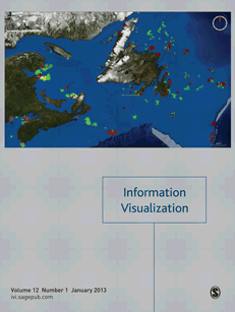
Information Visualization
Fostering clarity in complexity through visualization.Information Visualization is a distinguished journal published by SAGE Publications Ltd, specializing in the dynamic fields of computer vision and pattern recognition. With its ISSN (1473-8716) and E-ISSN (1473-8724), the journal has been a significant contributor to academic discourse since its inception in 1997, continuing through to 2024. Based in the United States and operating under rigorous peer-review standards, Information Visualization ranks in the second quartile (Q2) of its category, reflecting its impact and relevance within the scholarly community. It holds a commendable position, ranking 39th out of 106 journals in its field as per Scopus rankings, influencing 63rd percentile discussions in research. The journal’s objective is to advance the understanding of how data can be represented and interpreted visually, fostering innovation and facilitating knowledge transfer among researchers, professionals, and students alike. By delving into novel visualization methods and their applications, Information Visualization plays a vital role in bridging the gap between data science and human cognition, making it an essential resource for anyone looking to explore the intersection of technology and visualization.
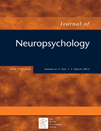
Journal of Neuropsychology
Transforming Understanding Through Cutting-Edge StudiesThe Journal of Neuropsychology, published by WILEY, is a premier academic journal dedicated to advancing the field of neuropsychology and its related disciplines. With a focus on behavioral and cognitive neuroscience, this journal presents cutting-edge research that informs our understanding of psychological functions and their underlying neural mechanisms. Operating with an impressive impact factor representative of its rigorous peer-review process, the journal has established itself within the Q2 and Q3 quartiles of multiple relevant categories, including Neuropsychology and Physiological Psychology. Researchers will find the ISSN 1748-6645 and E-ISSN 1748-6653 useful for academic referencing as they explore articles that span innovative methodologies and insights into neurological conditions. Published continuously since 2007, the Journal of Neuropsychology stands as a vital resource for professionals and students alike, fostering scholarly discourse and knowledge exchange in neuropsychological research.

Journal of Cognitive Science
Unraveling the Mysteries of the MindThe Journal of Cognitive Science, with ISSN 1598-2327, is a distinguished publication from SEOUL NATL UNIV, INST COGNITIVE SCIENCE, focusing on the multidisciplinary field of cognitive science. Established in 2016, this journal aims to advance knowledge in various domains, including Artificial Intelligence, Cognitive Neuroscience, and Experimental Psychology, while also delving into Linguistics and Language. Although currently categorized in Q4 for several subjects in the 2023 rankings, it presents an invaluable platform for innovative research and scholarly discourse, providing insights that connect cognitive processes with practical applications, thus fostering cross-disciplinary collaboration. Located in South Korea, the journal adheres to rigorous academic standards, inviting submissions that contribute significantly to understanding cognition in a digital age. While it does not offer Open Access, readers can access articles through university libraries and academic databases, engaging with the latest findings and theories that shape the future of cognitive science.
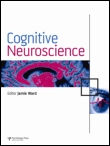
Cognitive Neuroscience
Fostering Interdisciplinary Dialogues in NeuroscienceCognitive Neuroscience is a pivotal journal in the ever-evolving field of cognitive neuroscience, published by Routledge Journals, Taylor & Francis Ltd, in the United Kingdom. Since its inception in 2010, this journal has dedicated itself to publishing innovative research that explores the intricate relationships between neural mechanisms and cognitive processes. With an increasing focus on interdisciplinary studies, it addresses critical issues from both theoretical and empirical perspectives. Although it currently holds a Q3 ranking in the Cognitive Neuroscience category, it has made significant strides in its Scopus ranking, now positioned at #62 out of 115, reflecting its growing impact on the academic community. Researchers and professionals will find the journal an invaluable resource for staying updated on the latest findings and methodologies in the field. While the journal operates under a traditional access model, it ensures high visibility and dissemination of crucial research that shapes our understanding of the brain's role in cognition. As it continues to evolve through to 2024, Cognitive Neuroscience remains committed to fostering collaboration and inspiring future innovations within the discipline.

Multisensory Research
Bridging Disciplines Through Sensory InnovationMultisensory Research is a premier academic journal published by BRILL, dedicated to advancing the fields of cognitive neuroscience, computer vision, and sensory systems. Established in the Netherlands, the journal boasts a diverse scope, exploring the integration of sensory modalities in both experimental and cognitive psychology. With its converged years extending from 2013 to 2024, Multisensory Research has consistently contributed valuable insights, earning a well-regarded position within various quartiles, notably Q2 in Computer Vision and Pattern Recognition and Q2 in Ophthalmology as of 2023. The journal’s rankings reflect its significant impact, with placements such as rank #50 in Ophthalmology and rank #84 in Experimental Psychology, highlighting its relevance to today's interdisciplinary research efforts. Available as an open-access platform, Multisensory Research ensures that innovative research is accessible to a wide audience, making it an essential resource for researchers, professionals, and students alike who are engaged in the dynamic study of multisensory integration.
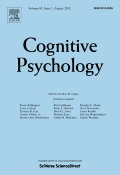
COGNITIVE PSYCHOLOGY
Pioneering Research in Cognitive PsychologyCOGNITIVE PSYCHOLOGY is a premier academic journal published by Academic Press Inc. Elsevier Science, specializing in the dynamic and evolving field of cognitive psychology. With a significant history spanning from 1970 to 2024, this journal has established itself as a critical resource for researchers and professionals alike, boasting a distinguished ranking in the Q1 category across multiple disciplines, including Experimental and Cognitive Psychology, Neuropsychology, and Artificial Intelligence. Its impact factor, reflective of its influence and reputation within the academic community, positions COGNITIVE PSYCHOLOGY as an essential platform for disseminating cutting-edge research and theoretical advancements. Although it is not open access, subscribers gain exclusive insights into the latest findings that drive the field forward. The journal's commitment to fostering innovative research makes it an indispensable tool for those dedicated to understanding the complexities of human cognition.
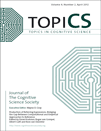
Topics in Cognitive Science
Illuminating the Pathways of Human-Technology InteractionTopics in Cognitive Science, published by WILEY, is a premier interdisciplinary journal that advances the understanding of the cognitive processes that underpin human behavior and interaction with technology. With a commendable impact factor and a strong focus on research from 2009 to 2024, this journal garners significant attention in various subfields, as evidenced by its Q1 ranking in Experimental and Cognitive Psychology and Linguistics and Language, alongside a Q2 position in Artificial Intelligence, Cognitive Neuroscience, and Human-Computer Interaction. Researchers and professionals will find invaluable insights into the latest experimental findings, theoretical discussions, and practical applications that bridge cognitive neuroscience, psychology, and computer science. Topics in Cognitive Science is especially pivotal for those aiming to delve deeper into cognitive mechanisms and their implications within our increasingly digital world, making it an essential resource for students and scholars alike.